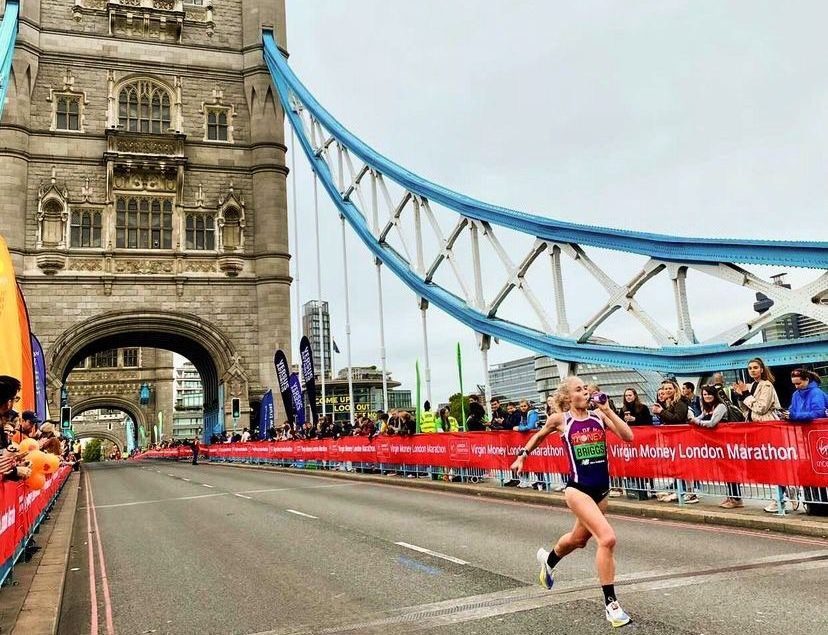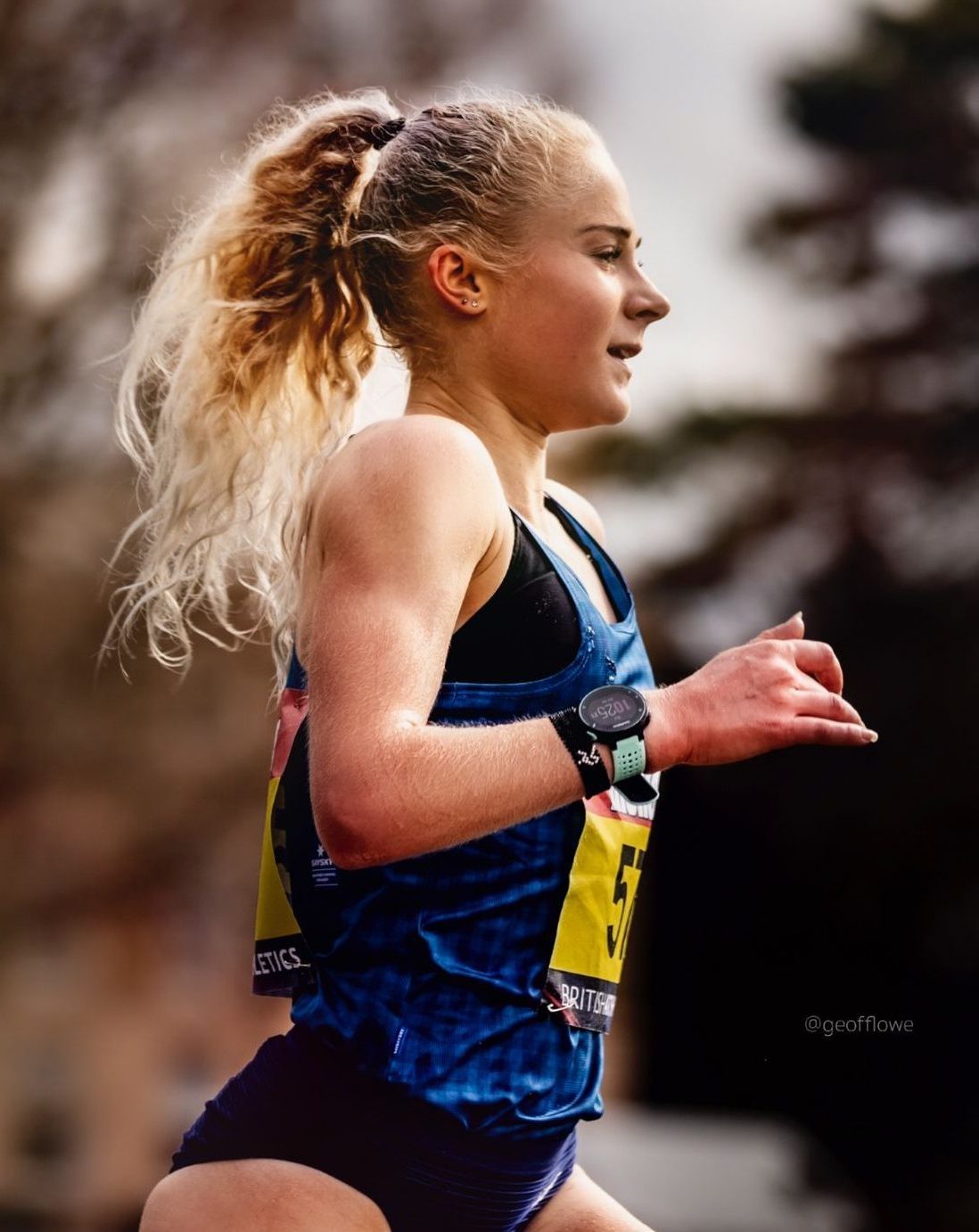Becky Briggs: “If this was a male problem, it would have been sorted years ago.”

For elite athletes, understanding their body to ensure training is informed and individualised is paramount.
This alone is challenging and time-consuming, from avoiding injuries to optimising training, all with the aim to increase performance.
Female athletes, however, must also navigate their menstrual cycles and understand how individual experiences impact them, alongside their training demands.
This task is made increasingly difficult when much of the research within sports science is conducted on males and then inappropriately applied to female athletes.

Becky Briggs, 21, is a British long-distance runner who has competed at both the World Cross Country and World Half-Marathon Championships. Briggs is also the British Under 20 half-marathon record holder, in 72 minutes and 54 seconds.
Becky recently ran her first Virgin London Marathon, crossing the line in two hours and 34 minutes, fifth-fastest British woman on the day and only narrowly missing Commonwealth qualification.
Becky has achieved a lot in her athletics career and has a bright future ahead of her, but the thing she is currently struggling with the most is her health.
Last month, Becky publicised her concerns via social media and mentioned that she was still yet to experience her first period.
“It’s made me feel really invalid as a female athlete, it’s been something I wish I could change and make myself “normal”. She told me. “I know how incredibly important periods are.”
“I’ve had people messaging me on social media for years, asking if I’ve started my period yet. This is a really personal topic for me, but I am ready to talk about it, open up the conversation and break down the taboo.”
Talking about your period can be difficult for female athletes, as no two individuals will have the same experiences, heightening the fears of being alone in this evermore present.
“The not knowing what’s going on inside has been hard too, it’s a red flag to people when they hear you haven’t started. They say – ‘you’re going to have poor bone health, you’re going to get stress fractures, your career is going to be over’. Obviously, this is really scary to hear.”
In some cases, the prolonged absence of a period can lead to several negative health implications, such as poor bone health and future reproductive issues.
The health of any individual should be prioritised by medical professionals. But for Becky, she has had to fight to be heard.
Becky mentioned she met with doctors in June this year but was not told anything specific and would have to wait until the end of November to see a specialist.
“In some senses in the medical world, it feels like females and periods is an isolated issue, like it’s not part of the rest of your body.
“This is when I feel it’s not taken seriously as an issue. Just because something like this happens, doesn’t mean it’s something that should be ignored”, said Becky.
Becky has continued to improve her times each year, from the 5km to the marathon, without any major signs that something might be wrong.
Due to the nature of the menstrual cycle being so individualised, it can be hard to find a solution that works from one person to another.
However, regardless of the intricacies, there is still a significant lack of specific research and information made readily available to female athletes.
“My questions still have never been answered. Yes there are specialists, but they are so expensive. I’m not a funded or supported athlete.”
“There’s no information anywhere. Believe me, I’ve looked, and I can’t find any”, Becky continued.
For some female athletes, losing your period can be attributed to under-fuelling and over-training, a condition known as athlete amenorrhea.
For Becky, she does not have a period to lose, so this is not a category that she fits into.
“All the research I’ve read has said that you should just stop running or exercising, eat more food and then your periods will magically come back.
“But I don’t know if that’s the case for me too and I’m not just going to stop if I might not have to.”
We are all aware of how important it is to talk about how we are feeling – to feel as though you’re being listened to and not judged.
So, for Becky to feel as though what she says might not be heard, is very worrying.
It is vital that more women and girls, athletes or not, can openly express how they are feeling, what they are experiencing and understand how they can move forward.
“You don’t see many men advocating for more research to be done or for it to be spoken about more. If this was a male problem, it would have been sorted out years ago.
“I think it’s crazy how its 2021, and it’s only now that conversations such as these are opening up but also the lack of support from men is incredible”, said Becky.
“At the end of the day, I am just a person trying my best and I’m struggling to know what to do.”
“I just hope that speaking up now will make some people who have spoken about me in the past take a step back and think.”